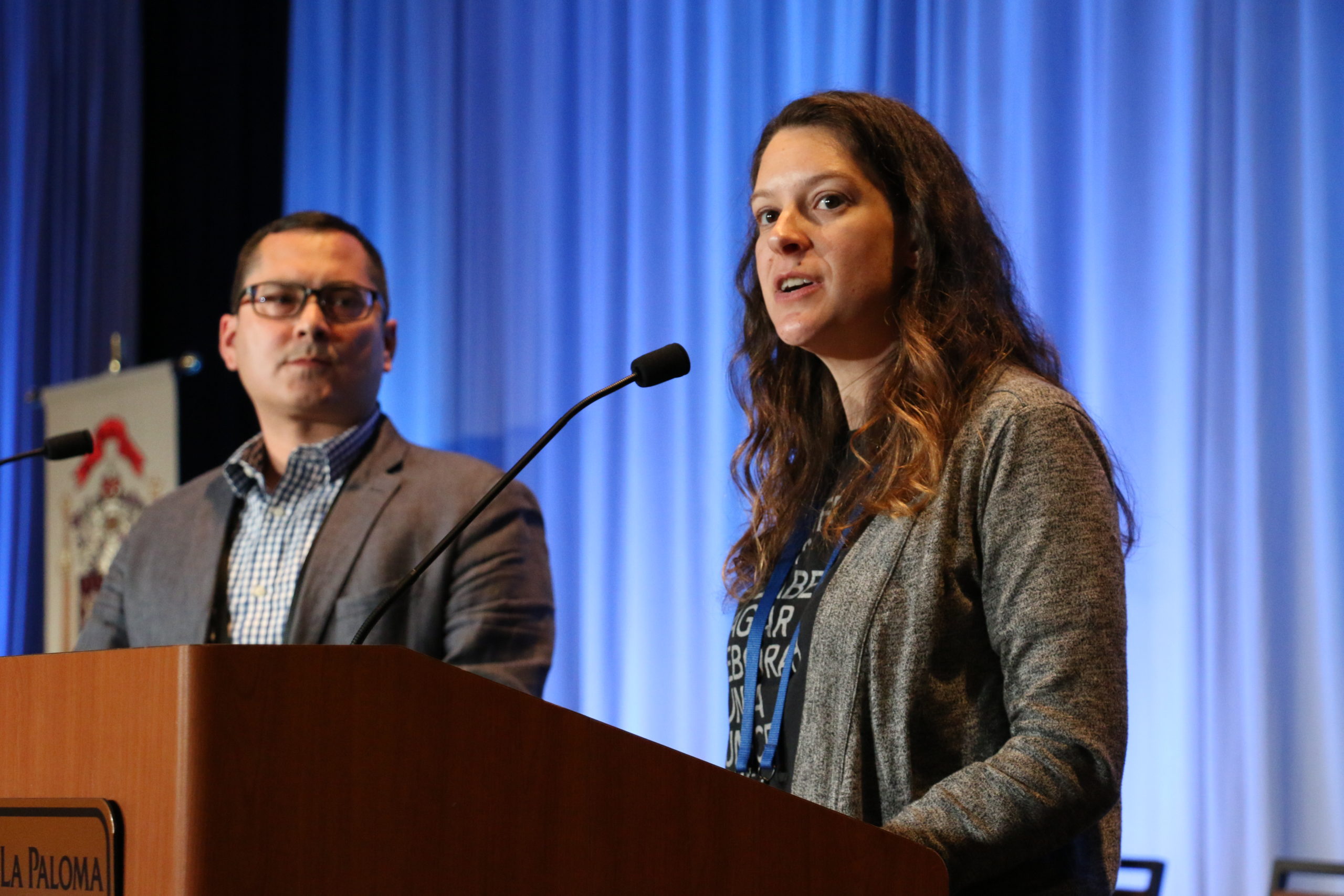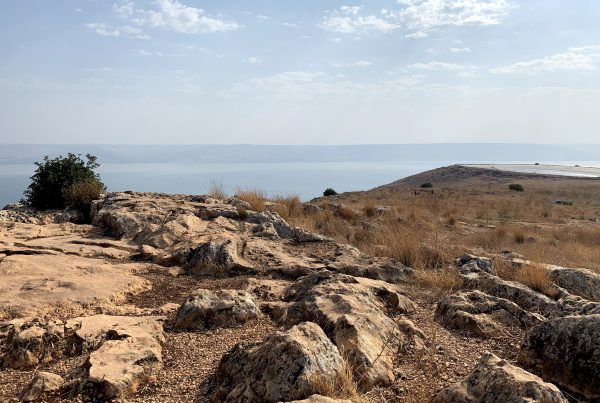On Saturday afternoon, General Synod passed a recommendation to appoint a team to develop a restructuring plan for the denomination “with a view to optimizing the RCA’s sustained spiritual and organizational health.” The recommendation came to synod from the Vision 2020 Team as part of its report.
The Vision 2020 Team was formed by General Synod 2018 to explore scenarios for the future of the RCA in light of significant divisions. The team looked into three future scenarios for the RCA: staying together, radical restructure, and grace-filled separation. Ultimately, they concluded that moving forward would involve a combination of all three of these possibilities.
The formation of this restructuring task force aims to prepare churches who remain in the RCA for healthy and sustainable ministry. The Vision 2020 Team discerned that restructuring would be necessary for this to happen.
“Some churches will separate. … Some will stay, and we want what remains to be a healthy organization for them,” explained Vision 2020 Team member Thomas Goodhart, who presented the recommendation to General Synod. “The landscape on which we all live out our faith is rapidly shifting, and new strategies may be needed for the RCA to not only survive but actually thrive in this rapidly changing context.”
A separate recommendation from the Vision 2020 Team proposes a grace-filled separation pathway for churches who want to leave the RCA.
The Vision 2020 Team explored different possibilities for restructuring the RCA as part of its work, but felt that “a restructure should ultimately be detailed and implemented by those who remain within the RCA,” said Goodhart.
As a result, the Vision 2020 Team did not recommend changes to the Book of Church Order (BCO) related to restructuring the denomination. However, the Vision 2020 Team did offer several suggestions for a restructured RCA in its report. They suggested the following four elements be used in considering a way forward.
- Reorganizing classes as affinity-based rather than geographically based, with the ability of any church to choose the classis to which it belongs.
- Keeping responsibility for decisions related to ordination and marriage in the hands of classes. (Note: The BCO already assigns ordaining ministers to the classis [1.II.2.9]. While it does not specifically address marriage, the BCO charges the classis with all ecclesiological functions “which are not specifically delegated to other assemblies” [1.II.2.11]).
- Keeping discipline of individual consistories in the hands of the classis. (Note: The BCO already assigns oversight of consistories and boards of elders to the classis [1.II.2.3]).
- Examining the viability, responsibility, and effectiveness of regional synods and General Synod in light of the size, scope, and structure of the denomination that remains. The Vision 2020 Team’s research indicates that the future RCA will not be large enough to sustain the regional synod assembly moving forward. One scenario might be for affinity classes and General Synod to assume the responsibilities of the regions. Options like this need to be evaluated and decided upon by those who remain in the denomination.
The recommendation itself instructs the appointed team to consider these suggestions from the Vision 2020 team in its work. This emerged as a point of contention among delegates during the two hours of discussion. There was widespread agreement about the need for restructuring, as evidenced by the report that summarized what was heard in this week’s discernment groups. But many delegates expressed reservations about some of the Vision 2020 Team’s suggestions for the restructure, and they worried about restricting a restructure to these ideas.
A number of delegates had specific concerns and questions about the idea of affinity classes. Speaking to what they value about geographical classes, some expressed deep appreciation for their own classes.
“We are composed of diversity, of conservatives and liberals, of many nations,” said minister delegate Grace Rim of her classis, the Classis of Rockland-Westchester. “We are an unusual group because we are so different. … But I call it my home, my second home. … All in all, we are a family of God.”
As approved, the restructuring team should consider the Vision 2020 Team’s guidance on future denominational structure, but is not bound by that guidance.
Delegates also wondered about the impact of waiting until 2024 to decide how to restructure—allowing the appointed team adequate time to do their work—and whether this recommendation did enough to address the divisions in the RCA. However, several delegates noted the extensive listening, prayer, and discernment the Vision 2020 Team put into its recommendations for the RCA, encouraging synod to take this work into consideration even if they did not agree with all of the team’s conclusions.
On Thursday, delegates participated in discernment group discussions about this recommendation. Before the recommendation came to the floor of synod, Sarah Palsma, a minister delegate and one of the discernment group facilitators, summarized the key themes and feedback from those discussions. Notably, the need for restructuring was affirmed, while unclarity around affinity classes, as well as the length of the process, was resisted. (Read the full summary of all the discernment group conversations here.)
After Goodhart presented the recommendation to synod for a vote, delegates engaged in hours of debate over the recommendation and its implications. This included an extensive discussion over the meaning of the word “should” and consideration of six different proposed amendments. Two amendments passed: one, to give the team until General Synod 2024 instead of 2023 because the recommendation came to synod more than a year later than expected due to the pandemic. Second, to replace the word “use” with “consider” in the instruction to weigh the four principles the Vision 2020 Team outlined in its report.
Ultimately, the recommendation passed in a vote of 135 to 69.
The General Synod Council will be charged with appointing a team of between ten and fifteen people that, following the recommendation’s specifications, will “be composed of several executive RCA staff members, and of representatives from around the RCA drawn from regional or local assemblies that have expressed an intention to remain in the Reformed Church in America, and should be representative of the racial, ethnic, gender, age, socio-economic, geographic, and other forms of diversity present in the RCA.”
The restructuring team will conduct its work in consultation with the Commission on Church Order, along with “any other bodies it finds necessary.”
On Monday, synod passed a recommendation directing the restructuring team to consider the idea of affinity synods in its work as well. This recommendation came from the Advisory Committee on Overtures and New Business in response to an overture.
Related news:
RCA Global Mission to Remain RCA
New Regulations Adopted for Departing Churches





